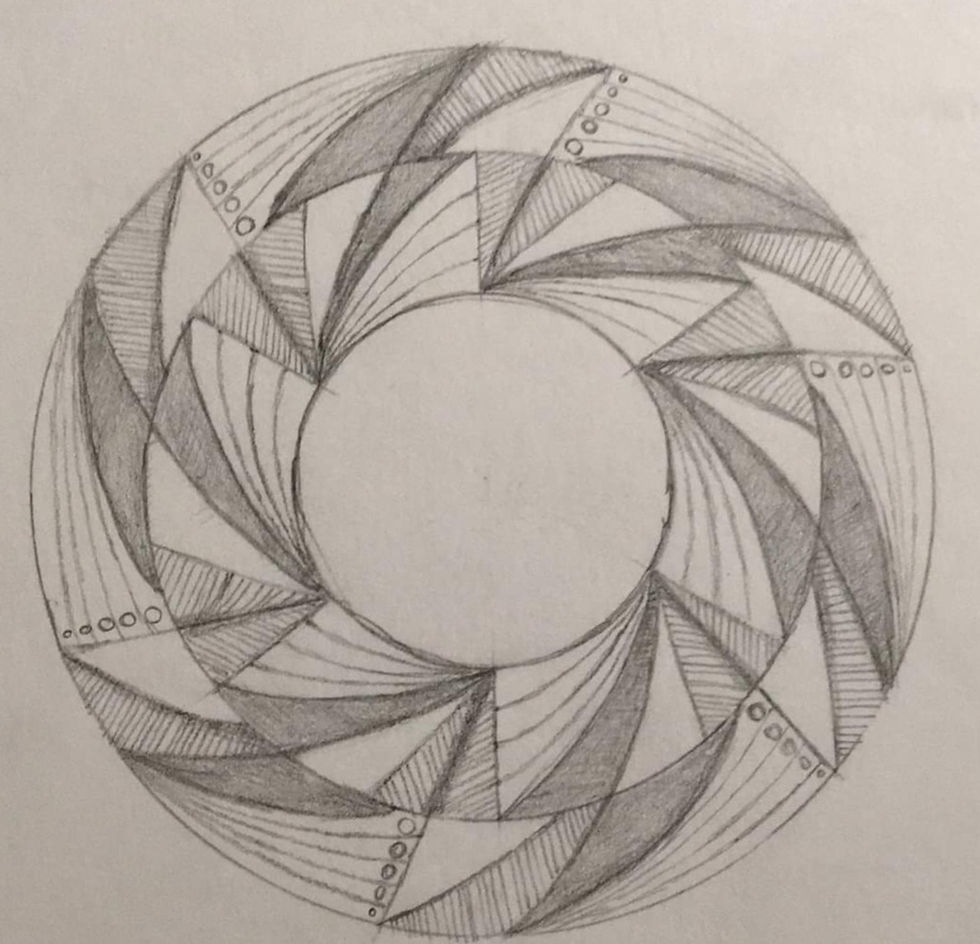Concerning the Abyss of darkness - a psychological view
- Almog Yarden
- Nov 16, 2020
- 3 min read
Updated: Mar 20, 2023

The ego is a person's sense of self and identity, influenced by their attachments to their family, career, financial situation, and other external circumstances. If the ego is firmly attached to these things, then the concept of an "abyss" or void could be a frightening experience because it would represent a loss of all these attachments and a sense of self-based on them. In the abyss, the only thing that remains is the core, standalone sense of self, and none of the external factors that the ego typically uses to define itself - such as family relationships, professional status, physical abilities, or social status - have any significance. Without these external identity markers, the ego must redefine itself and identify solely with the "soul carnal," or the innermost essence of being. This process can lead to a shift in perspective and a sense of enlightenment as the individual becomes aware of themselves as a separate entity from the external world and their previous dependencies on it to maintain their sense of self. This process can also be seen as a journey from ignorance, or a lack of self-knowledge, to a greater understanding of the self and a release from the need for validation from external sources.
According to the teachings of Chen Buddhism, enlightenment is a process of achieving singularity with the "carnal," or the innermost essence of being, by completely letting go of all external identities and attachments. This process can take 25-30 years of meditation to achieve and is not guaranteed. However, it is suggested that certain practices, such as occult rituals or psychoanalysis, can accelerate this process by helping break through the barriers that fixate the ego to external identities and providing support and guidance through the potentially complex process of transformation. In addition, growing awareness and acceptance of the fact that the self is changing and letting go of old identities can also help to facilitate this process and make it easier to endure. It is important to note, however, that there is a risk that the ego may become attached to latent fears and emotional trauma that may surface during this process. Therefore, seeking additional support or guidance may be necessary to navigate these challenges.
In the old school Jogic approach to enlightenment, it is believed that achieving singularity with the "carnal," or the innermost essence of being, involves establishing oneself in a state of deep Samadhi or meditation, with the sole attachment being to the carnal in the abyss. Furthermore, it is believed that one must remain in this state until the ego completely detaches itself from the body. According to this perspective, total liberation from the ego and attachments is only concretely achieved after physical death. It is important to note that this is just one perspective on enlightenment and liberation, and many other teachings and traditions offer different approaches and understandings of these concepts.
According to the described viewpoint, the physical body is heavily influenced by the "Id," or the part of the psyche that is driven by primal urges and addictions. The external world's pull can also be strong, and it is believed that even a minor attachment of the ego to these external influences can pull the individual's soul or astral body back from a state of Samadhi or immersion in the abyss. It is believed that the difficulties of existence fade away after physical death, leaving only the sensation of the etheric body and a desire to experience it again. This perspective has two extremes: total renunciation of all addictions and sensual pleasure or complete immersion in these experiences to the point of saturation. However, in both cases, it is suggested that the Id will remain present as part of the ego even after death. Only powerful beings such as Lucifer, Abandon, Shiva, and Anubis, it is believed, can facilitate true liberation and guide individuals through becoming a "dweller in darkness," both during life and after death. It is important to note that this is only one viewpoint on these concepts, and it may not be shared by all people or traditions.
According to the perspective described, the "Superego" is a structure that weighs heavily on the Left-Hand Path (LHP) practitioners and suppresses their freedom and joy of life. To discard this tyranny, it is suggested that one should work with the "defiler" and identify with the dark carnal or "black diamond" through repetitive experiences of the abyss. This is believed to break false attachments and purify the ego of external influences, allowing the individual to embrace the pleasures of the "Id" and attain transcendency. However, it is essential to note that this is just one perspective on the LHP and the process of achieving transcendency and may not be shared by all individuals or traditions.



Comments